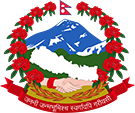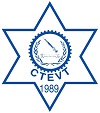Dakchyata TVET Practical Partnership – high level Public Private Partnership stakeholders from Nepal explore collaborative practices in Malaysia
High level Public Private Partnership stakeholders from Nepal explore collaborative practices in Malaysia
Dakchyata: TVET Practical Partnership is a 14.1M EUR skills development project funded by the European Union (EU) and managed by the British Council through a Pillar Assessed Delegation Agreement (PAGoDA) in Nepal. ‘Dakchyata’ (meaning ‘skills’ or ‘dexterity’ in Nepali) is currently the largest British Council skills project in implementation globally, and will run for four years from 2017-2021.
The project is part of the European Union’s overarching TVET Practical Partnership (TVET-PP) programme in Nepal, with British Council activities complementing those under the Sakchyamata project implemented by the Council for Technical Education and Vocational Training (CTEVT) in Nepal. The specific objective of the overall action is to strengthen and implement more effectively TVET policy which is responsive to labour market needs, and to pilot an integrated Public Private Partnership (PPP) approach in three key economic sectors: i) agriculture (commercial farming and food production), ii) construction, and iii) tourism.
Activities are designed to bring together those that demand and supply skills within the three economic sectors through individual PPP project grants that enable the piloting of innovative approaches to ensuring the right balance between the responsiveness and appropriate governance of skills. Additionally, the project supports the government’s role in the TVET system through the delivery of technical assistance to enhance the development and implementation of relevant policies, monitoring and quality assurance mechanisms.

A high level TVET PPP Working Group has been formed to enable senior government officials and leading private sector representatives to come together to discuss and explore practical options for strengthening PPP working practices in Nepal.
The Working Group has benefitted from international expertise on PPP practices implemented in countries in South and East Asia, and Sub-Saharan Africa, followed by a week-long study visit in Malaysia in July 2018. Participants were introduced to a wide range of public-private collaborations across all levels of the national TVET system in Malaysia, where examples of private sector engagement range from involvement in training delivery, quality assurance and assessment, to systems development and mechanisms for influencing and informing policy decision-making.
Nepali government officials noted the significant levels of engagement demonstrated by private sector actors in the Malaysian system: for example, in Malaysia it is the private sector that holds the mandate for development of National Occupational Skills Standards, in contrast with Nepal where this is driven by public sector entities. Similarly, it was observed that the use of levy systems such as the Human Resource Development Fund (HRDF) provides a strong basis for sustainable funding in Malaysia, bringing together both public and private sector through one common platform.
The study visit also provided the opportunity to facilitate sharing and exchange of information between senior Malaysian and Nepali government and private sector representatives. Delegates met with representatives from the Malaysian Ministry of Education, Ministry of Agriculture and Agro-based Industry, Construction Industry Development Board, Malaysian Hotel Association, Malaysian Employer Federation, Penang Skills Development Center, and Malaysian Qualifications Agency among others.

The organisation of the study visit was made possible by strong a collaboration between the British Council’s Nepal and Malaysia offices, drawing on our networks and relationships on the ground to ensure high level and mutually beneficial participation from stakeholders from both countries.
The study visit marked a significant step in the PPP Working Group’s engagement, with delegates returning to Nepal with enhanced knowledge and understanding on strengthening and capacitating private and public sector actors, and new ideas for the development of an effective TVET PPP system for Nepal.
Delegates’ feedback on the visit was very positive - Mr Mukunda Keshari Pokharel, Under Secretary at the Nepali Ministry of Education, Science and Technology, stated that the study visit programme had been “educational and inspirational as it provided practical learning on varied TVET public private partnership modalities, which is helpful in drawing similar scope for a possible Nepali TVET PPP system”. Mr. Suresh Pradhan, immediate past president of the FNCSI (Federation of Nepal Cottage and Small Industries) & President SAC SME Forum (South Asian Countries SME Forum) commented that he had returned with many new specific ideas about PPP practices that could be explored for Nepal.
Participants collectively concluded a series of key findings which will be used to inform the development of an effective TVET PPP system in Nepal. Over the coming months, Working Group members will continue to convene on a regular basis to work on the development and endorsement of recommendations on possible TVET PPP guidelines for enhancing public and private sector coordination and participation at all levels in Nepal TVET system.
The Dakchyata – TVET Practical Partnership project is funded by the European Union, and implemented by the British Council in Nepal under the leadership of the Ministry of Education and Council for Technical Education and Vocational Training. The contents of this publication are the sole responsibility of the British Council and can in no way be taken to reflect the views of the European Union.






